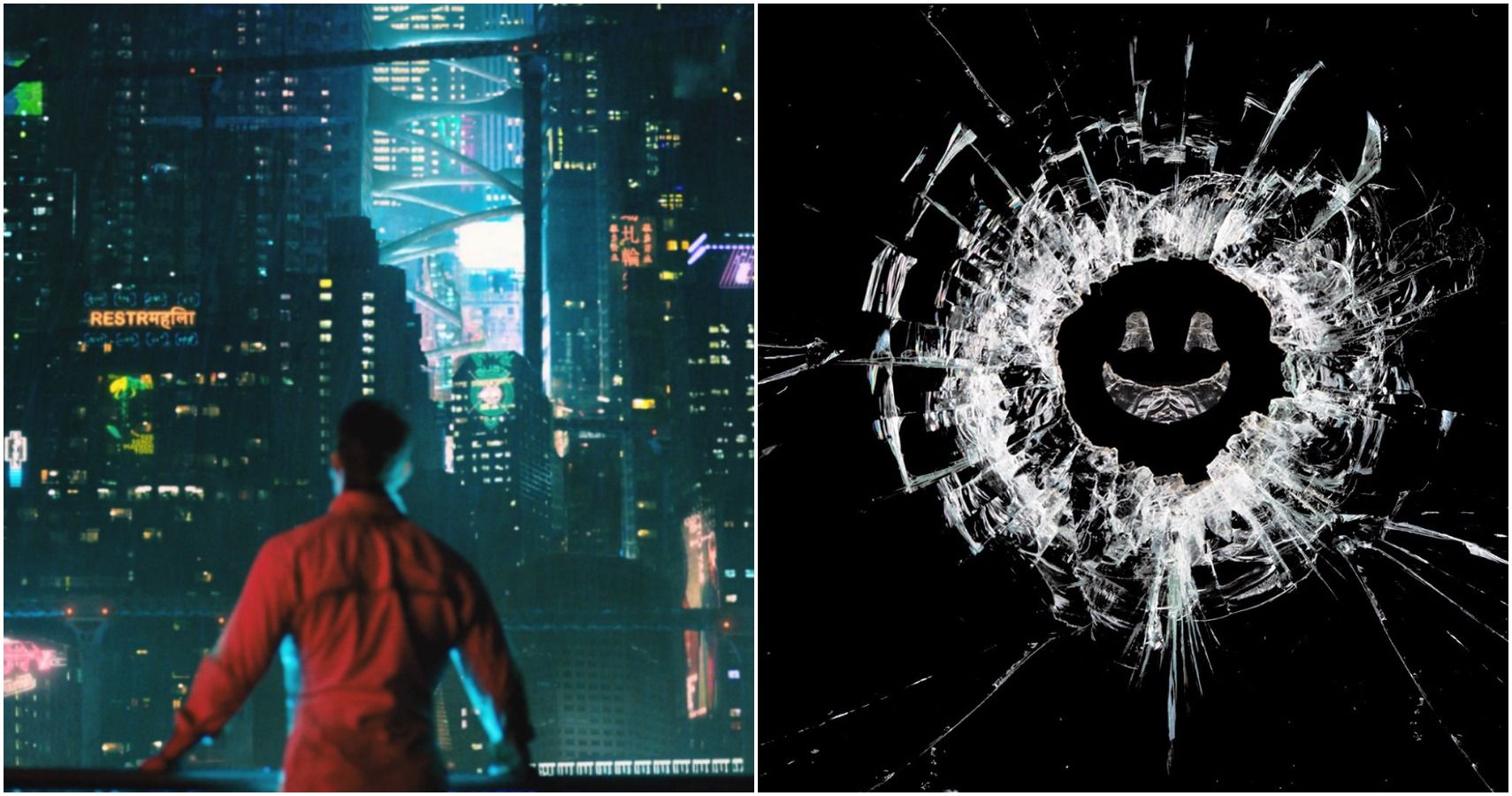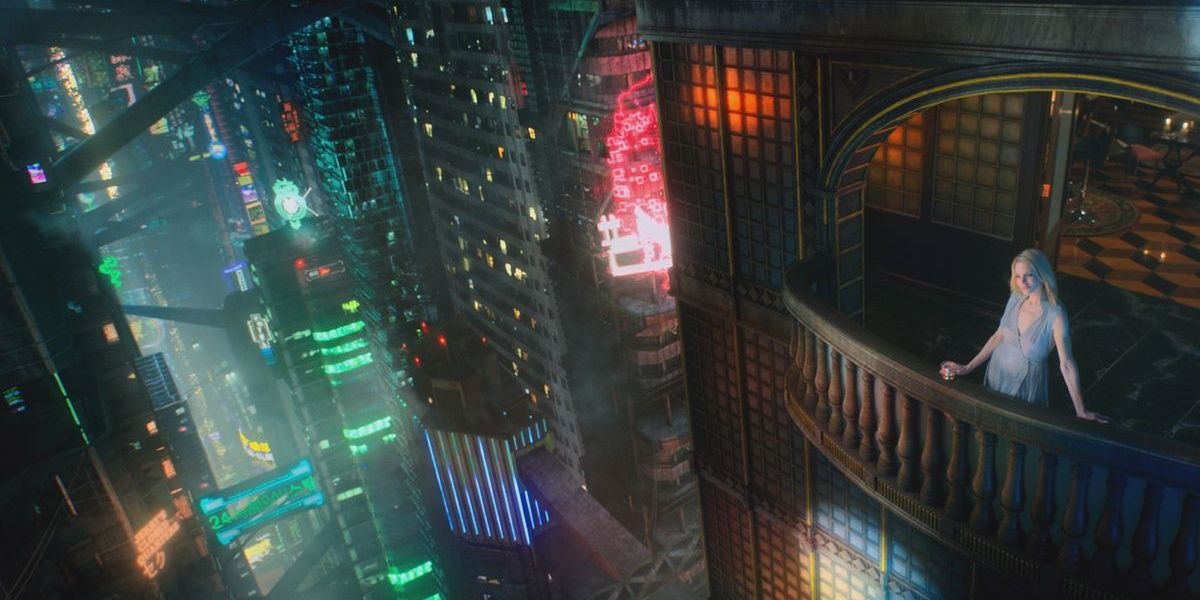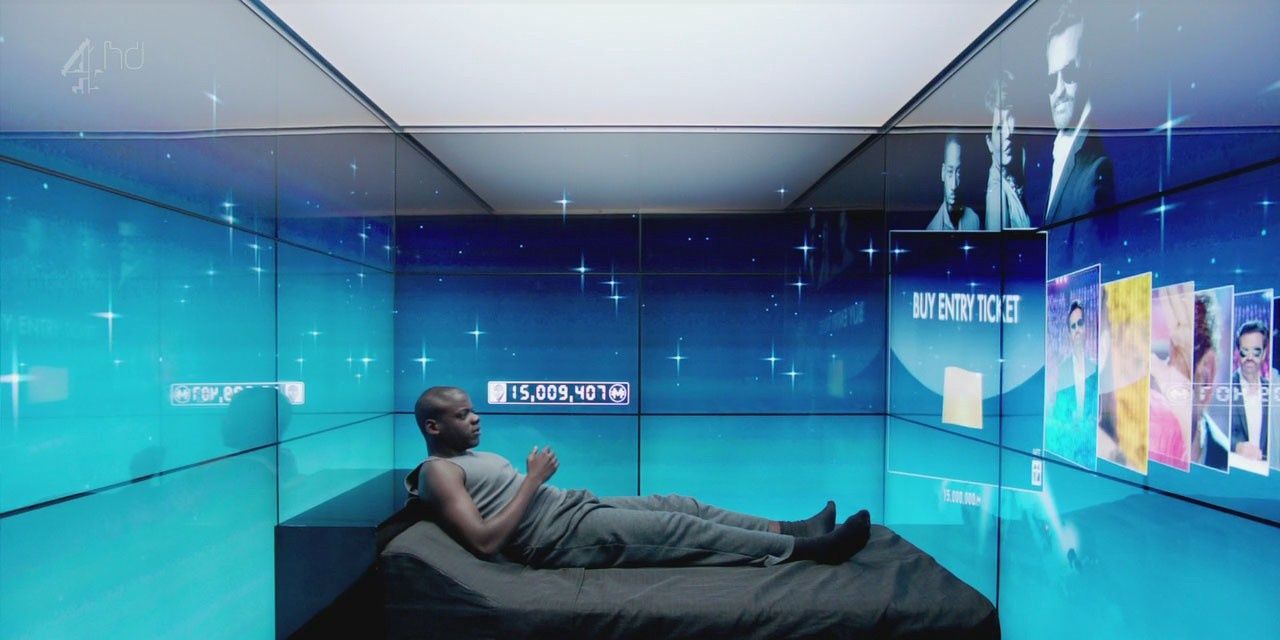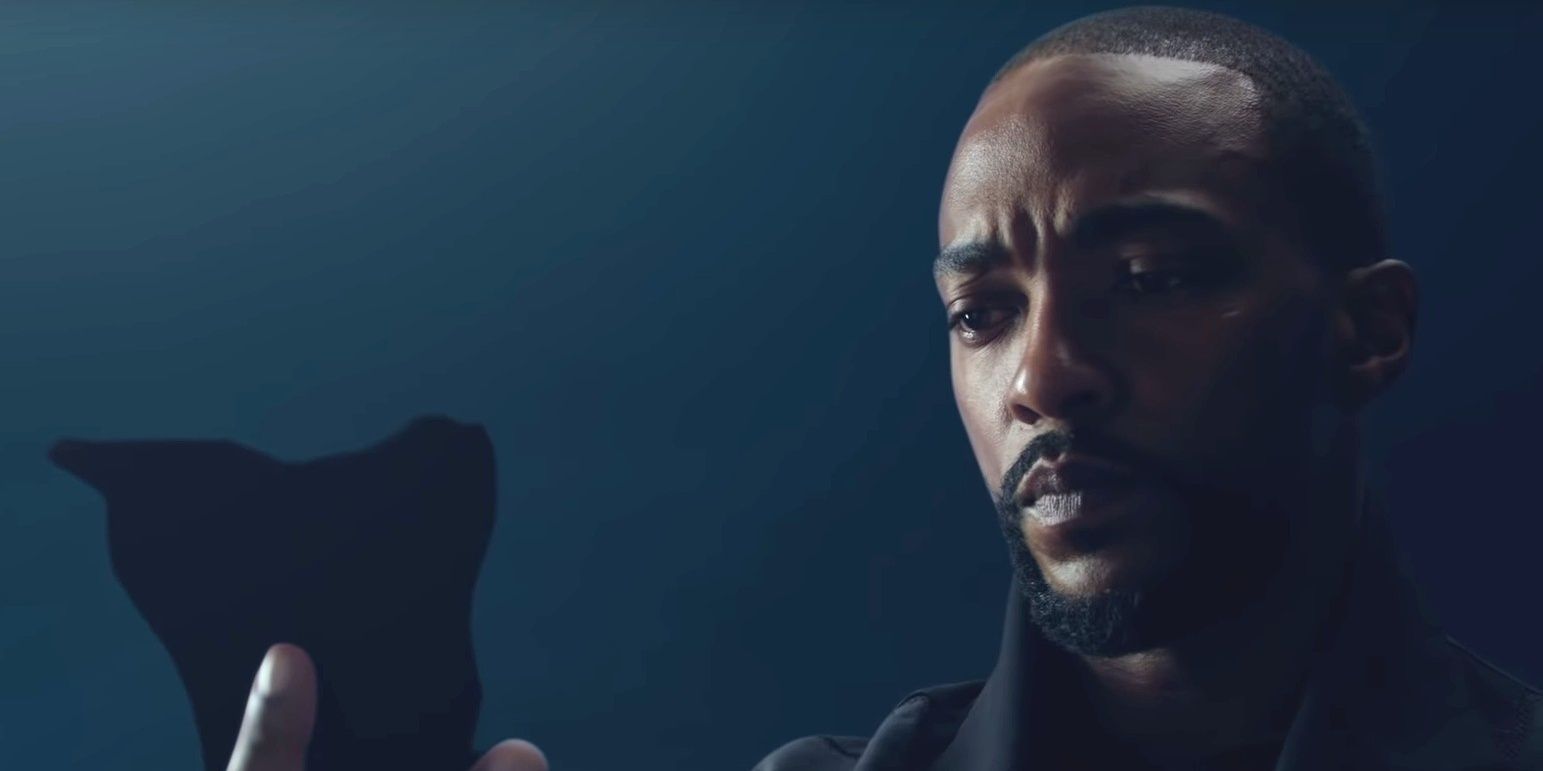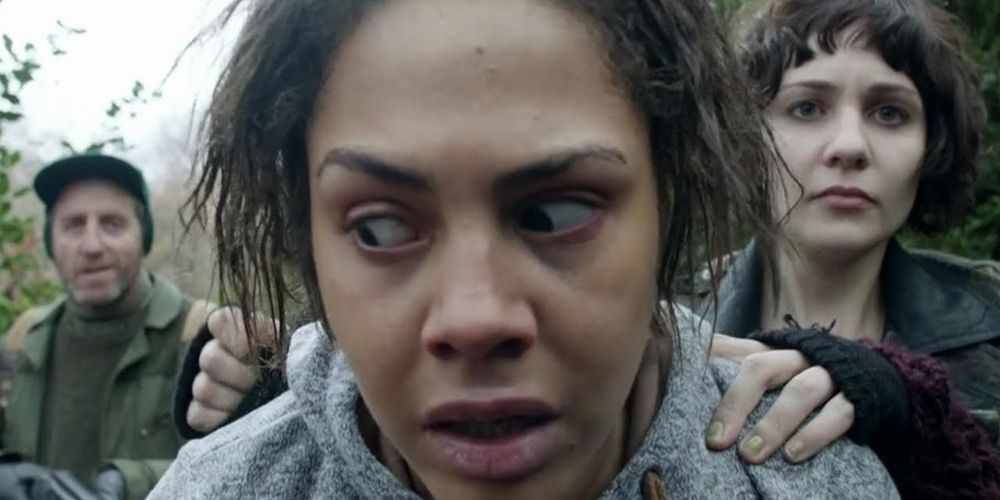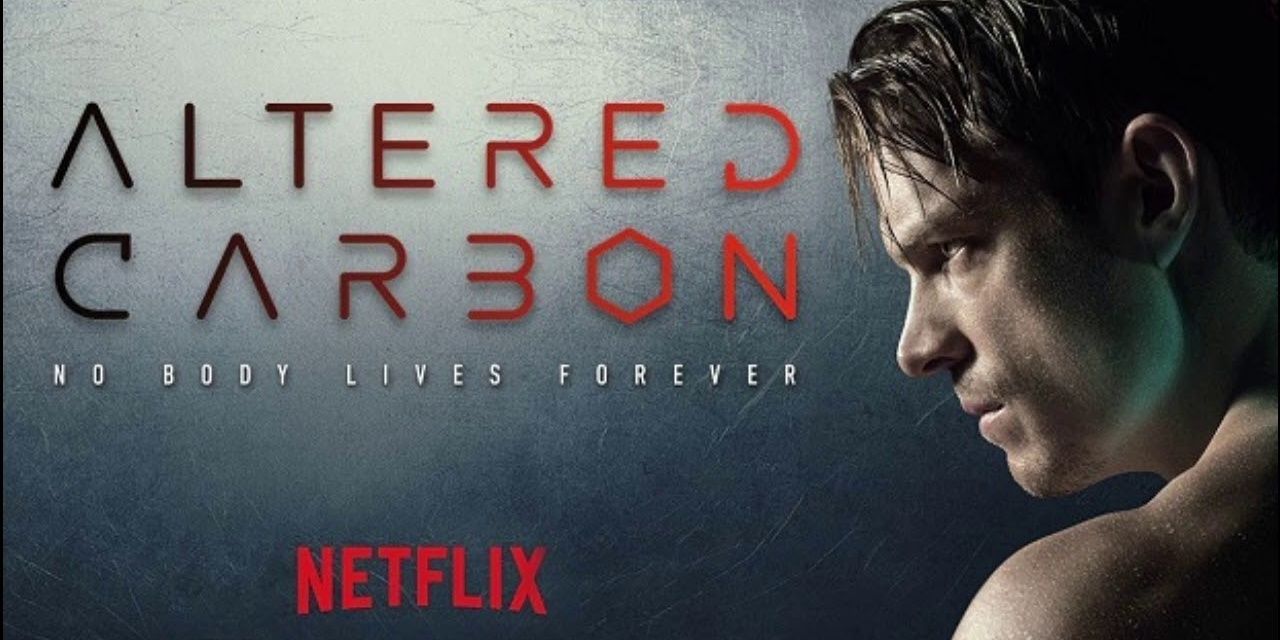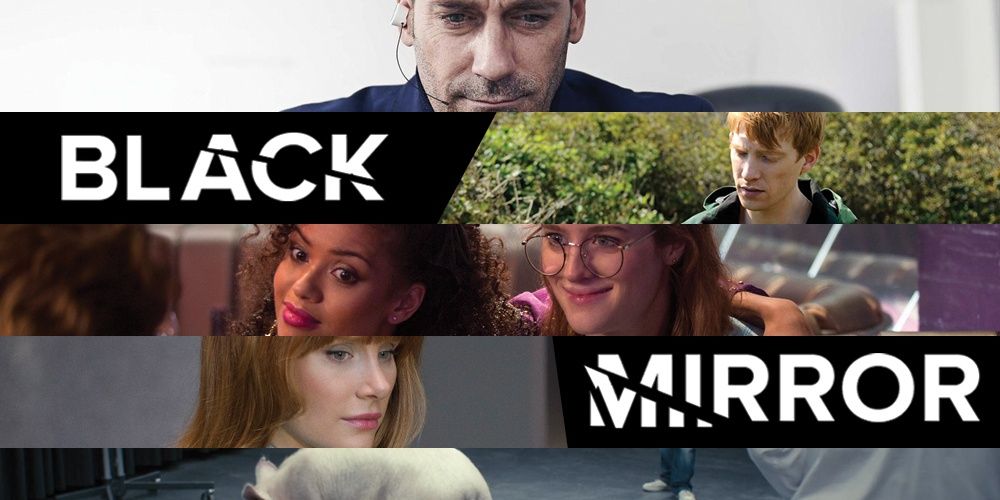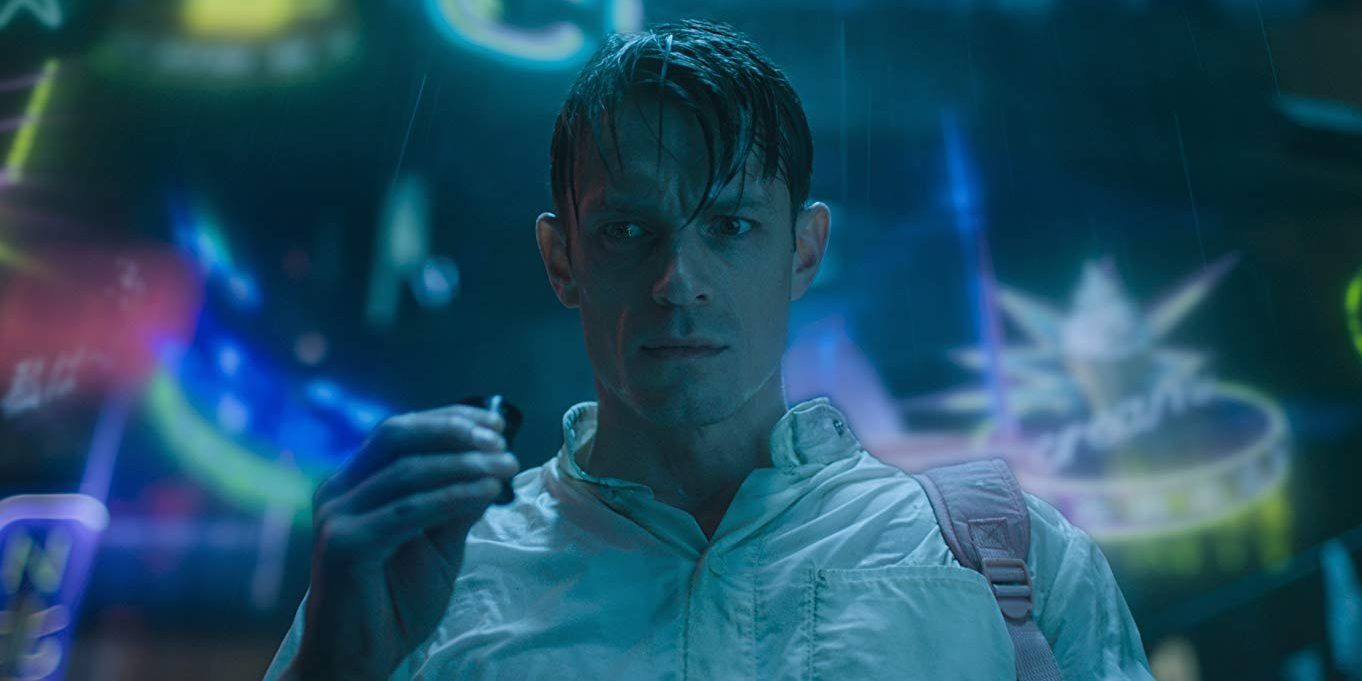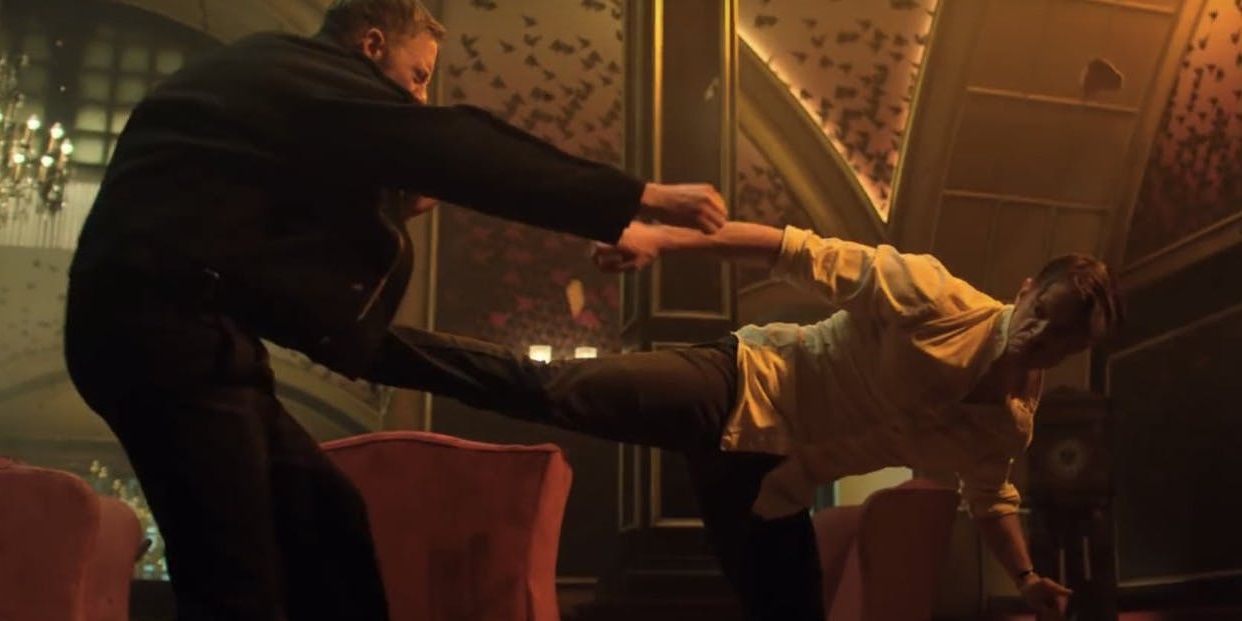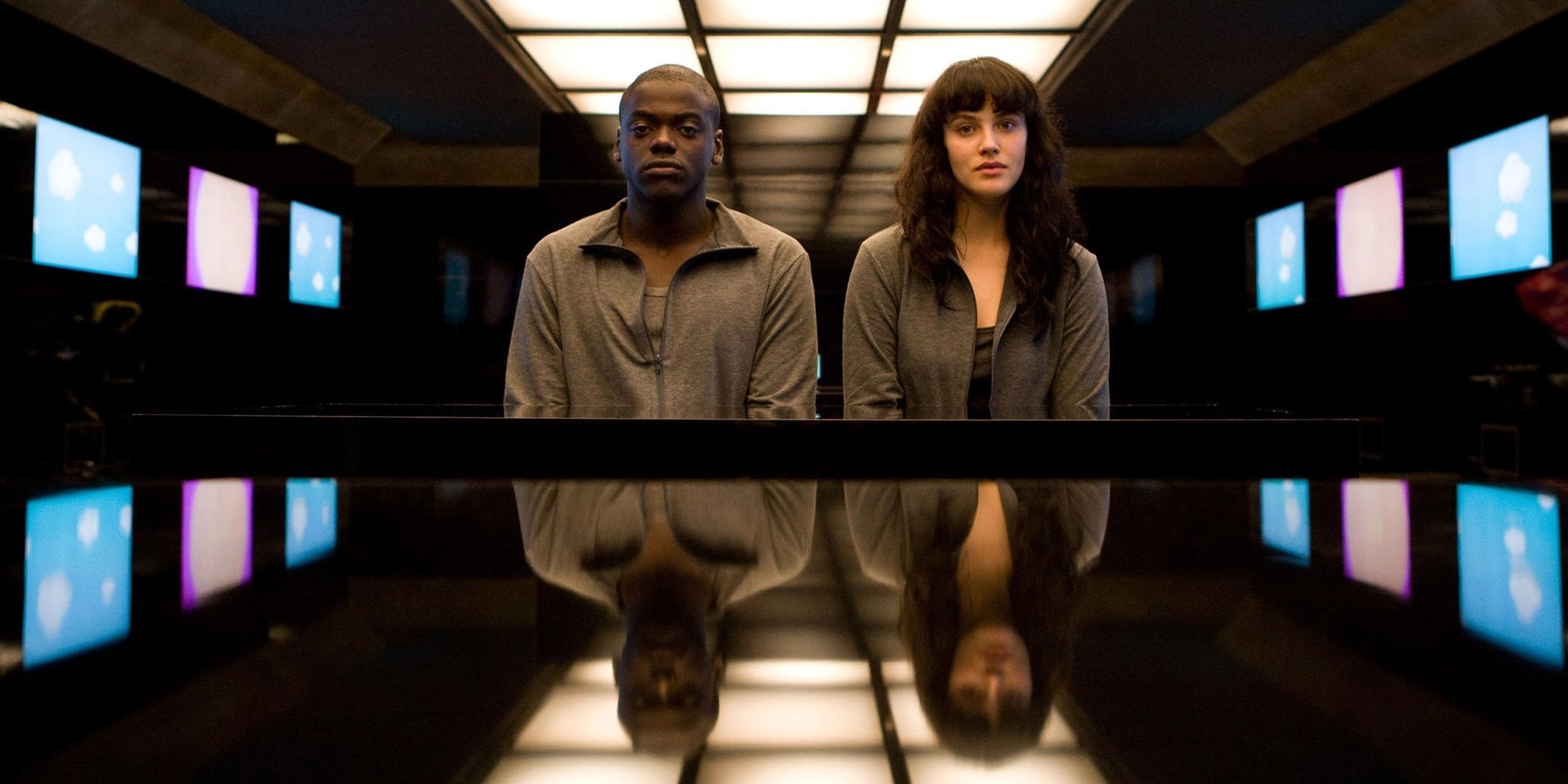Black Mirror is an incredibly popular sci-fi/horror series out of the UK that first hit screens in 2011 on Channel 4. The series is the brainchild of Charlie Brooker and presents a different standalone story each episode, tackling big questions regarding technology, humanity, and the future. Channel 4 aired two 3-episode series and a special before Netflix took over production, giving us 3 more seasons and a movie, with potentially more to come.
Altered Carbon is another popular Netflix show, this time a Netflix original, this time a singular narrative that asks similar questions but in a more specific cyberpunk vision of the future based on the English novel of the same name by Richard K. Morgan. The show first aired in 2018, so far giving us 2 seasons and an animated movie spin-off.
Both shows ask important questions of humanity's destiny and take a stab at presenting a stylized real-world future, sparing no expense on special effects and casting. Anthony Mackie's role in Black Mirror Season 5 also brought the shows closer together. The question is, which is better?
Altered Carbon: The Future
Altered Carbon's vision of the future makes a lot of sense and ties into a lot of modern speculation. The popular theory that we all potentially live in an incredibly realistic simulation is tested and explored specifically during a larger exploration of humanity's growing over-reliance on technology. The show also presents an incredibly diverse and integrated humanity, perhaps better than any other futuristic show. The show's vision of the future has been compared to Ridley Scott's Blade Runner franchise.
Black Mirror: The Future
One of the advantages of being an anthology show means Black Mirror can experiment with multiple potential futures, each based on a different aspect of modern society, and each taking humanity down a different path. The premise also allows for some episodes to take a concept less seriously to have more fun with it. While character development can only last an episode, Black Mirror can explore the future we might create for ourselves from multiple angles, while designing a setting and group of characters to fit the premise each time.
Altered Carbon: Mystery
While you could liken Black Mirror's thorough take-no-prisoners roasting of modern society to HBO's flagship sci-fi show Westworld, you could also compare Altered Carbon's wistful storytelling to Westworld. Like Westworld, Altered Carbon wraps all the story and lore up in a big mystery that unfolds gradually throughout the over-arching narrative, making for a tense, jaw-dropping watch.
Some call Altered Carbon derivative, but it can also be seen as an homage to the best of the genre, and the show has its own unique story to tell.
Black Mirror: Fresh Horror
Black Mirror may be a sci-fi premise, but one of the things that drew people to the show was the show's take on horror. While Hollywood is starting to show some real chops over the last few years when Black Mirror dropped it served as a refreshing antidote to a genre growing stale. Instead of pointless jump-scares and demons rotating all your furniture for no reason, Black Mirror turned that which we rely on against us and got inside our heads.
Altered Carbon: Life and Death
The sci-fi premise of 'cortical stacks' - where a person's consciousness and memories are stored on a spinal implant - not only allows for a juicy trust-nobody Minority Report meets Memento plot, but lets the show get into the nitty-gritty of what makes you who you are, as well as the nature of consciousness and life itself. The gimmick also lets the show mix up the casting, using 'sleeves' like The Doctor uses regeneration.
Black Mirror: Anthology
The anthology-style seems to fly in the face of what caused the TV industry boom since the main advantage TV shows have over movies is the ability to spend more time with your central characters and story and explore them on multiple levels. But Black Mirror quickly proved they made the right choice, providing fresh quality TV (nearly) every episode.
The show also pays homage to The Twilight Zone and other similar shows from a time where the format was more common. It also harks back to Urban Gothic, a Channel 5 horror anthology series that aired in 2000, though Black Mirror managed to remain more consistent with its quality.
Altered Carbon: Humanity
While dressed up with a lot of sci-fi visuals and gadgetry, ultimately Altered Carbon is a show about humanity. It's about inner turmoil, questioning your sanity and memories, and questioning everything you can perceive. Like all good sci-fi, it demonstrates a future where we've made substantial progress in so many fields, including curing death in this instance but are no closer to answering the fundamental questions of the nature of life and the universe itself.
Black Mirror: Homage
As dark as it is, Black Mirror is a lot of fun to watch, especially by the more seasoned and desensitized viewer. While even the best narrative shows have the occasional slow episode over-burdened by story obligations or indulging actors who've bagged producer roles, Black Mirror is always exciting, and you never know what you're going to get. The show takes on a different sci-fi/horror trope every episode and nails it, as well as paying homage to or even parodying specific pop-culture, like a non-comedy live-action Rick and Morty.
Altered Carbon: Action
A common staple of sci-fi, and movies in general, is elaborate high stakes action, with sci-fi allowing for all sorts of advanced (and often impossible) weaponry. Altered Carbon doesn't disappoint when it comes to action, and has a good enough handle on its budget to hold up to Hollywood, a bar set for all major TV productions these days. The show also keeps the action simple, and while utilizing the futuristic environment, the characters predominantly fight with guns or their bare hands, putting it in the wonderfully atmospheric sci-fi noir category.
Black Mirror: Depth
What made Black Mirror so special and the horror so satisfying wasn't the anthology gimmick or the sci-fi adornments, but the depth and intelligence behind the extraordinary visual storytelling. They take teen-friendly premises (such as killer hashtags) and seriously explore the implications in the show's world and ours, and never fail to get under the audience's skin and leave them contemplating the destiny of our 'civilized' species.

